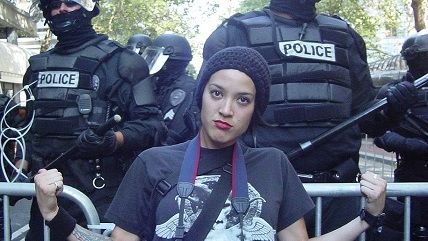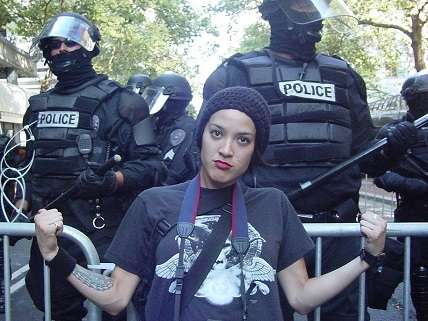Portland Cops Agree to Lose 48 Hour Waiting Period After Using Deadly Force in Exchange for 3 Percent Pay Raise
Shouldn't have had it in the first place, but it's the unsurprising product of allowing public employees to collectively bargain with government


The city of Portland, Oregon, and the local police union have reportedly arrived at a tentative deal on a new three-year-labor contract, one that would increase the top salaries for various positions by three percent a year for three years, bringing max pay to about $89,000, according to OregonLive.com. That's in addition to guaranteed annual cost-of-living increases police already enjoy. The deal could cost nearly $7 million. Its details have not been released because, the city argues, the deal is not yet final, although city watchdogs are calling on the deal to be released now for public input.
The pay increases reportedly come in exchange for a number of concession from the police union—namely, they promised to drop nearly a dozen labor complaints against the city, and agreed to lose the privilege of getting to wait 48 hours after the use of deadly force before having to speak to internal affairs investigator. If a resident filed a complaint against police, then told them he'd drop the complaint in exchange for, say, a permit, he'd likely be charged with filing a false complaint and extortion. But it's all s.o.p. for labor unions, and particularly public unions which, unlike unions in the private sector, do not even have to be concerned with the financial stability of their employers. After all, the government doesn't have to turn a profit or provide services people want, it can always simply raise taxes.
As OregonLive.com reports, other details of the deal remain unclear. The federal Department of Justice and the city reached a police reform agreement in 2014, and it remains to be seen how much of that agreement will be honored in the union contract. OregonLive.com also notes details about whether body cameras will be used and how use of force investigations might change are unavailable. The secrecy behind the deal is unsurprising—government agencies regularly insist they don't have to be transparent about "ongoing" matters—and also unhelpful. Such police union contracts will continue to propagate bad practices, with government negotiators inclined to support the employees that support them, until the negotiation process becomes far more transparent.


Show Comments (24)